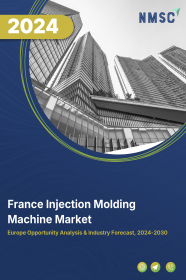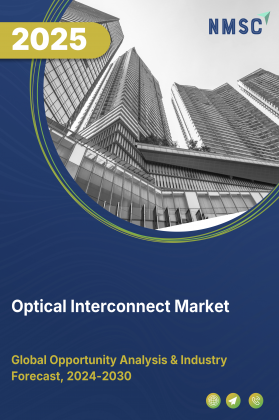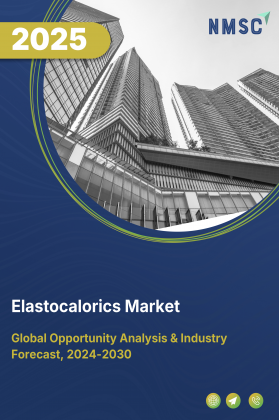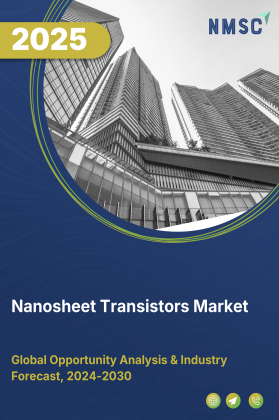
France Injection Molding Machine Market by Machine Type (Hydraulic, All Electric, and Hybrid), by Product Type (Plastic, Rubber, Metal, Ceramic, and Other Product Types), by Clamping Force (Below 200 Tons, 200-500 Tons, and Above 500 Tons), by End User (Automotive, Packaging, Electrical and Electronics, Healthcare, Consumer Goods, Toy Making, Building and Construction,Home Appliances, and Others), by Business Type (New Sales, and After Sales)–Opportunity Analysis and Industry Forecast 2024–2030.
Industry: Semiconductor & Electronics | Publish Date: 09-Oct-2025 | No of Pages: 154 | No. of Tables: 200 | No. of Figures: 133 | Format: PDF | Report Code : SE1459
Market Definition
France Injection Molding Machine Market size was valued at USD 518.60 million in 2023, and is predicted to reach USD 578.99 million by 2030, with a CAGR of 1.2% from 2024 to 2030. An injection molding machine, also referred to as an injection molder, is a sophisticated industrial apparatus designed for the precise and controlled injection of molten plastic material into a mold cavity. It melts the plastic resin and forces it into a mold under high pressure. Injection molding machines are essential tools for producing various plastic parts and products across various sectors, including automotive, consumer goods, electronics, medical devices, and others.
Growing Demand For Lightweight And High-precision Components
In France, the push toward vehicle electrification, stricter EU emission regulations, and the rise of mobile consumer electronics have amplified the need for lightweight, high-precision components. Injection molding machines play a critical role in meeting these demands due to their ability to produce complex parts with minimal weight and maximum mechanical performance. Advanced thermoplastics and fiber-reinforced polymers are increasingly favored across the automotive and aerospace sectors to reduce fuel consumption and improve energy efficiency. Injection molding enables the mass production of these intricate parts with consistency and structural integrity. Additionally, in the fast-evolving electronics and medical sectors, miniaturization and component accuracy are driving manufacturers to adopt injection molding technologies capable of tight tolerances and fine detailing, further accelerating market growth.
Strong Shift Toward Circular Economy And Material Efficiency
France’s national sustainability initiatives and EU-wide directives—such as the European Green Deal and Single-Use Plastics Directive—are pushing industries toward low-waste, energy-efficient manufacturing methods. Injection molding supports these goals through highly optimized material use, low scrap rates, and compatibility with recycled and bio-based resins. The ability to reprocess thermoplastics and reduce virgin material usage makes injection molding machines a preferred choice for companies aiming to comply with France’s environmental regulations and carbon reduction targets. Furthermore, advancements in machine design, including all-electric models, significantly reduce energy consumption during production, contributing to greener operations. These sustainability advantages, coupled with pressure on manufacturers to adopt closed-loop production systems, are key drivers elevating the adoption of injection molding machines in the French market.
Shortage Of Skilled Operators And Technical Expertise
A major restraint in the France injection molding machine market is the persistent shortage of skilled labor capable of operating and maintaining advanced molding systems. As machines become more automated, integrated with Industry 4.0 technologies, and reliant on digital controls and precise calibration, the demand for highly trained technicians has grown significantly. However, the domestic talent pool is struggling to keep pace with this evolution. Small and mid-sized enterprises (SMEs), which form a large part of France’s manufacturing sector, often lack access to the technical training and recruitment resources needed to fill these roles. This skills gap limits production efficiency, leads to increased machine downtime, and raises the cost of onboarding and retaining qualified staff—ultimately hindering the broader adoption of modern injection molding systems across the country.
Rising Demand For Flexible, Small-batch, And Customized Manufacturing
In France, the growing shift toward customized, short-run production is unlocking new opportunities for the injection molding machine market. This trend is particularly prominent in sectors like luxury consumer goods, cosmetics packaging, and medical devices, where personalization, aesthetics, and function-specific designs are increasingly demanded. French manufacturers are embracing flexible manufacturing models, and advanced injection molding machines—especially hybrid and all-electric variants—are enabling efficient production of customized components with reduced lead times and minimal material waste. Machines equipped with rapid mold change systems, smart controls, and digital interfaces allow seamless transitions between product designs, making them ideal for accommodating frequent design iterations and client-specific requests. As French industry moves toward more agile, customer-centric manufacturing, demand for highly adaptable and automation-ready injection molding solutions is expected to rise significantly.
Competitive Landscape
The France injection moulding machine industry includes several market players such as Arburg GmbH & Co KG, ENGEL Austria GmbH, Husky Injection Molding Systems Ltd., Haitian International Holdings Limited, Sumitomo (SHI) Demag Plastics Machinery, Nissei Plastic Industrial Co., Ltd., Ube Industries, Ltd., KraussMaffei Group GmbH, Milacron LLC, The Japan Steel Works, Ltd., Chen Hsong Holdings Limited, DK Technologies, Wittmann Battenfeld GmbH, Shibaura Machine Co., Ltd., Yizumi Protecnos, FCS Group, Ferromatik Milacron, Mitsubishi Heavy Industries, and Others.
The France Injection Moulding Machine Market Key Segments
By Machine Type
-
Hydraulic
-
All Electric
-
Hybrid
By Product Type
-
Plastic
-
Rubber
-
Metal
-
Ceramic
-
Other Product Types
By Clamping Force
-
Below 200 Tons
-
200-500 Tons
-
Above 500 Tons
By End User
-
Automotive
-
Interior
-
Trim
-
Exterior
-
Other
-
-
Packaging
-
Caps and Closures
-
Thinwall Containers
-
Lids
-
Personal Care
-
Containers
-
Pet Preforms
-
Other Packaging
-
-
Electrical and Electronics
-
Healthcare
-
Consumer Goods
-
Toy Making
-
Building and Construction
-
Flooring
-
Windows
-
Doors
-
Others
-
-
Home Appliances
-
Others
By Business Type
-
New Sales
-
After Sales
Key Players
-
Arburg GmbH & Co KG
-
ENGEL Austria GmbH
-
Husky Injection Molding Systems Ltd.
-
Haitian International Holdings Limited
-
Sumitomo (SHI) Demag Plastics Machinery
-
Nissei Plastic Industrial Co., Ltd.
-
Ube Industries, Ltd.
-
KraussMaffei Group GmbH
-
Milacron LLC
-
The Japan Steel Works, Ltd.
-
Chen Hsong Holdings Limited
-
DK Technologies
-
Wittmann Battenfeld GmbH
-
Shibaura Machine Co., Ltd.
-
Yizumi Protecnos
-
FCS Group
-
Ferromatik Milacron
-
Mitsubishi Heavy Industries
REPORT SCOPE AND SEGMENTATION:
|
Parameters |
Details |
|
Market Size in 2023 |
USD 518.60 million |
|
Revenue Forecast in 2030 |
USD 578.99 million |
|
Growth Rate |
CAGR of 1.2% from 2024 to 2030 |
|
Analysis Period |
2023–2030 |
|
Base Year Considered |
2023 |
|
Forecast Period |
2024–2030 |
|
Market Size Estimation |
Million (USD) |
|
Growth Factors |
|
|
Companies Profiled |
18 |
|
Market Share |
Available for 10 companies |
|
Customization Scope |
Free customization (equivalent up to 80 working hours of analysts) after purchase. Addition or alteration to country, regional, and segment scope. |
|
Pricing and Purchase Options |
Avail customized purchase options to meet your exact research needs. |

















 Speak to Our Analyst
Speak to Our Analyst

























